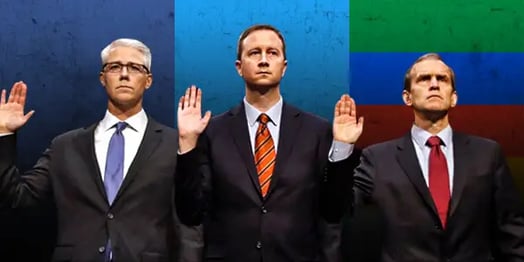On Tuesday and Wednesday, lawyers representing Facebook, Google, and Twitter testified before the US Senate on the topic of Russian involvement in the 2016 election.

The hearings specifically honed in on the spread of fake, election-related news, ads, and social accounts generated by Russian trolls — and it served as a conversation starter for a proposed bill that would regulate political advertising online.
In case you didn’t have 6+ hours to watch the action, here’s what you need to know.
Facebook took the brunt of criticism — and we got a sense of how big their Russia problem actually is
In September 2017, Facebook discovered that some 470 accounts linked to the Kremlin had paid $100k for 3k political ads during the US election cycle. But during the Senate hearings, we got a broader figure: Russian troll accounts generated 80k Facebook posts that were seen by 29m Americans (and possibly as many as 126m).
These fake creations included groups like “Heart of Texas” (250k followers), which posted ads with fake stats, and memes spreading misleading information about how to cast votes for Clinton.
Facebook was quick to point out that these “malicious” posts only accounted for 0.004% of all the content on their platform — but qualified the statement by admitting “any amount of content, however small,” was damaging.
In general, the tech giants didn’t seem to have many suggestions for improvement
There were many times throughout the hearings (available here and here) where senators asked for specific action items to fix these issues. The companies were relatively vague.
Facebook said it plans to double its team of fake news patrollers from 10k to 20k, Twitter vowed to work closely with the Senate, and Google touted improved ad approval guidelines. None of the tech giants agreed to the terms of the Honest Ads Act proposed by the Senate.
Senators were generally unenthused by these responses.
“I don’t think you get it,” scolded Sen. Dianne Feinstein (D-Calif.). “What we’re talking about is a cataclysmic change… the beginning of cyber warfare… You have to be the ones to do something about it or we will.”
